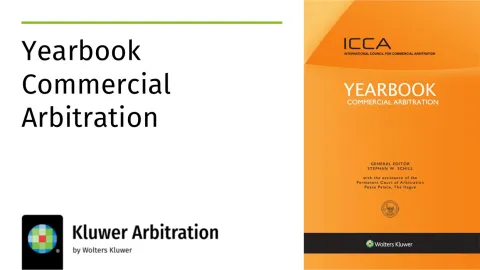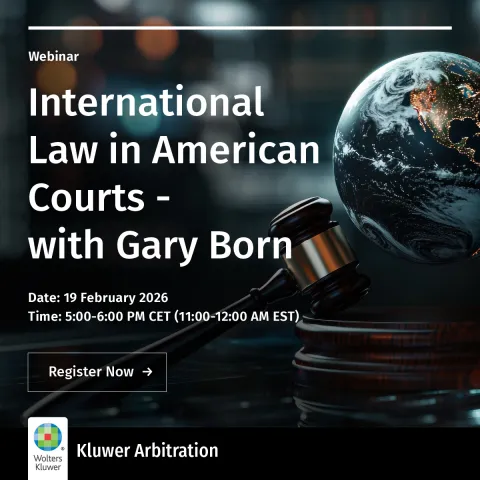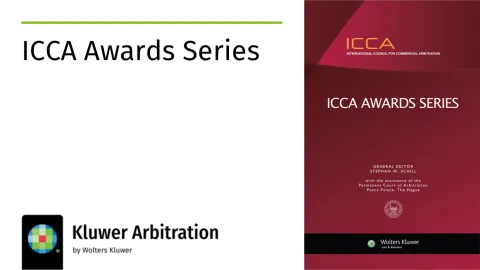CBAr 24th International Arbitration Conference: Day One—Integrity and Arbitration
October 11, 2025
From 17 to 19 September 2025, the Brazilian Arbitration Committee—CBAr held its 24th International Arbitration Conference (“24th CBAr IAC”) in Rio de Janeiro. In light of the growing debate over ethical standards and legitimacy in arbitral proceedings, the subject of this year’s Conference was “Integrity and Arbitration.”
The 24th CBAr IAC was a success. Over three days, the event gathered more than 700 participants from 14 countries and 46 speakers, featuring more than 15 panels and offering a program that combined institutional perspectives, legislative debates, and practical cases.
The Organizing Committee designed the program to highlight integrity as the guiding thread of the event, bridging academic, institutional, and practical perspectives. Discussions ranged from the challenges posed by reforms to the Civil Code, boundaries of tribunal secretaries’ roles, the standards of transparency applicable when States or State-owned entities are involved, and the broader reflections on how integrity sustains arbitration’s legitimacy.
Integrity as a Daily Duty
The opening remarks by the President of CBAr, Débora Visconte, set the tone for the meeting: “integrity is a prerequisite for arbitration,” and confidence in the process has been put to the test by practices and legislation. The role of each actor (counsel, experts, and institutions) is to safeguard integrity on a daily basis, with responsibility and reasoned decision-making, without outsourcing it to external agents.
Next, Federal Solicitor General Adriana Venturini emphasized the systemic impact of risks to probity—from the nomination and selection of arbitrators to the manipulation of evidence—warning that the trivialization of challenges can distort arbitration and push disputes back to the courts. She called for objective parameters and transparency from the outset to mitigate reputational risks and preserve efficiency. Among the measures she proposed were: establishing clear and uniform criteria for the appointment and challenge of arbitrators, particularly in cases involving public entities; ensuring mandatory disclosure of potential conflicts of interest and selection procedures; promoting early transparency regarding procedural rules, fees, and institutional oversight; and defining standards for the production and admissibility of evidence to curb manipulation. For Venturini, reputational integrity in arbitration depends not only on individual ethics but on consistent governance practices capable of preventing opacity and reinforcing public trust in the arbitral process. Legitimacy is earned.
In his keynote, Charles Jarrosson distinguished integrity—understood as honesty and fidelity to one’s founding principles—from legitimacy, which he defined as adherence to higher values, transcending mere legality. He began by recalling the historical reasons for arbitration’s “natural” legitimacy: its consensual foundation, rooted in party autonomy and the idea that justice may arise from mutual trust rather than state authority. This autonomy, Jarrosson argued, originally imbued arbitration with legitimacy because it embodied self-governance and efficiency—values long celebrated in commercial relations.
He then turned to the current sources of challenge, noting that the very growth and institutionalization of arbitration have created tensions: increasing professionalization risks distancing the practice from its consensual origins, while procedural opacity and unequal access to information can erode public confidence. To restore and sustain legitimacy, Jarrosson proposed a return to first principles—consistency, transparency, and accountability in both procedure and conduct. Legitimacy, he concluded, is not granted but earned daily through coherent practices that align arbitral autonomy with fairness, ensuring that integrity remains the foundation upon which trust in arbitration is built.
The Babel of Integrity
The first panel was framed by a powerful image: the “Tower of Babel”—a metaphor for the proliferation of roles, perspectives, and rules currently orbiting integrity in arbitration, with the question “are we speaking the same language?” The moderator proposed using this lens to examine, above all, the work of tribunal secretaries, experts, and party-appointed technical assistants, seeking “common denominators” across dispersed practices and guidelines. The speakers were Júlia Girão Baptista Martins, André Petersen, and Fabio Nuñez Del Prado.
In the block devoted to tribunal secretaries, the presentation systematized a baseline appointment and oversight protocol: conflict checks applicable to the secretary (with duties of independence and impartiality similar to those of arbitrators), submission of the name of the proposed tribunal secretary by the presiding arbitrator for approval by the co-arbitrators, execution of a statement of independence and confidentiality, and, finally, formal consent by the parties. These duties upon a tribunal secretary should be continuous—if a new fact arises, disclosure is required.
Such practices align with widely recognized soft law and institutional guidelines. The Young ICCA Guide on Arbitral Secretaries (2014) provides a “traffic light” classification of permissible tasks, distinguishing between administrative, supervised, and prohibited functions. The LCIA Arbitration Rules (Art. 14A) and accompanying Notes for Arbitrators require express party consent for any delegation and forbid secretaries from performing decisional acts. Similarly, the ICC Note to Parties and Arbitral Tribunals on the Conduct of Arbitration (2021) details permissible administrative assistance while warning against any involvement in decision-making. The ICDR Guidelines on the Use of Arbitral Tribunal Secretaries (2022) reinforce this approach, emphasizing consent, supervision, and impartiality. Finally, the UNCITRAL Notes on Organizing Arbitral Proceedings (2016) recommend disclosure of a secretary’s role, scope of duties, and remuneration to ensure transparency. Together, these instruments frame a consistent international standard: tribunal secretaries may assist, but never decide.
As to functions, there appeared to be no controversy over administrative and organizational tasks of tribunal secretaries, such as document and deadline management, communications, logistical support, dossiers/timelines, and transcription support (as reported here). However, divergence arises when the secretary conducts legal research or drafts non-decisional portions of orders and reports: some reject this as “signaling” that the arbitrator has not read first-hand; others contend that, under the tribunal’s explicit direction and supervision, such tasks increase efficiency without compromising integrity (see also here). Reference was made to institutional rules such as the LCIA Arbitration Rules (Art. 14A), which require prior party consent and prohibit delegation of any decisional act; the ICC Note to Parties and Arbitral Tribunals on the Conduct of Arbitration (2021), which mandates disclosure of the secretary’s scope and role; and the ICDR Guidelines on the Use of Arbitral Tribunal Secretaries (2022), which recommend written approval of the secretary’s functions by all parties. Likewise, the UNCITRAL Notes on Organizing Arbitral Proceedings (2016) advise that the secretary’s duties, authority, and remuneration be agreed upon and disclosed at the outset. These instruments share the same rationale: to ensure that the secretary’s remit is predefined, transparent, and subject to party oversight—thus preserving the tribunal’s exclusive responsibility for the decisional function.
This critical point connected to the panel’s central premise: decisional content is non-delegable (see also here). The discussion went beyond what the secretary “may do” to where assistance ends and decision-making begins. Fabio Nuñez underscored that arbitrators cannot delegate the formation of their conviction or the decisional act. The possibility of substantive debate with secretaries was discussed—some accept it, others reject it—and it was noted that part of the controversy stems from differing understandings of “decision-making.”
The panel also explored a recurrent evidentiary problem: how to demonstrate undue influence by an assistant when participation occurs behind the scenes, and what to do when faced with practically impossible (“diabolical”) evidence? In a reflective vein, the idea of burden-shifting mechanisms in extreme scenarios was floated, while acknowledging the complexity of enforcing such solutions without creating new risks.
As to expert evidence, André Petersen proposed a framework that shifts the focus from the “source” of appointment to methodological quality (see also here). He distinguished three sources of partiality: (i) origin-based—who appoints the expert), (ii) cognitive—technical limitations that narrow analysis, and (iii) dispositional—the assistant acting as a “technical advocate.” The critique here is that we overvalue “origin” and underestimate the other two, especially the cognitive and dispositional forms, which pollute debates with weak theses and rhetoric. The practical proposal: track and assess experts over time to identify performance patterns and reduce bias.
On the perennial controversy “tribunal-appointed expert versus party-appointed experts,” the panel relativized the dichotomy: there is no intrinsic superiority of one model over the other, and the choice depends on the case; in many scenarios, having one expert per party may be preferable, but this brings the challenge of reconciling methodologies and curbing legal contamination in technical reports. What is essential is to ensure high-quality expert work, with qualified professionals and testable methodological criteria—which, in itself, reduces “cognitive partiality” and empties sterile disputes.
In closing, the moderator’s synthesis was straightforward: assistants must in fact assist, without encroaching upon the arbitrators’ adjudicatory function; it is for the tribunal to supervise conduct and curb deviations, on pain of tainting the award. In parallel, a minimum common denominator of standards for secretaries and experts across institutions and rules was advocated, capable of reducing the normative “Babel” and providing predictability to parties and arbitrators.
In terms of best practices emerging from the debate, the following stand out: formalizing Terms of Reference for a tribunal’s secretary role (permitted/prohibited scope, express supervision, audit trails), securing party approval for tasks beyond administrative support, and maintaining quality records for experts—alongside active tribunal oversight to preserve the distinction between support and decision. The throughline, faithful to the Congress theme, is that integrity is not an abstraction, but the daily governance of the roles surrounding the arbitral tribunal.
Music Before Method
The concert was performed by a chamber ensemble from a social project, aligning the Congress with an agenda of inclusion: Ação Social pela Música do Brasil (ASMB). ASMB is a non-profit organization focused on social inclusion through classical music education, with a mission to educate and foster youth leadership and to develop chamber music ensembles to enhance the technical and artistic training of young musicians.
One Statute, Many Echoes
The Young Practitioners’ Event on “Arbitration in Bill No. 04/2025” moderated by Pietro Webber and featuring Inaê Siqueira de Oliveira, José Victor Zakia, and Ana Paula Mageste, addressed the proposed reform of Brazil’s Civil Code, a comprehensive legislative project currently under discussion that aims to modernize key areas of private law—including contracts, obligations, property, and civil liability—and to incorporate contemporary issues such as digital transactions and arbitration. The standout theme was the critique of legislative redundancy in Brazil such as repeated references to “judge or arbitrator” which generate undesirable interpretive effects. The panelists were clear that the statute should “say it once, clearly,” because interpreters do not presume duplication and tend to ascribe useful meaning to what is repeated.
The panelists also engaged in an analysis of an insurer’s subrogation and its effects on the arbitration clause (see also here). They examined the scenario in which, after indemnifying the insured, an insurer subrogates and pursues the respondent. They criticized approaches that condition the transfer of the arbitration agreement on the insurer’s “prior awareness” of the clause, arguing instead that subrogation translates the claim in its entirety—i.e., the insurer succeeds to both the substantive right and its procedural accessories, including the agreement to arbitrate—so awareness should not be determinative.
Particular attention was also given to the Bill’s importation of figures such as “arbitral service of process (citação)” and “inability to complete service (protesto no rosto dos autos arbitral)” for statute of limitation purposes. Without doctrinal fit: there is no “service of process” in arbitration as under the Code of Civil Procedure (CPC); more appropriate trigger events for purposes of limitations periods would be the communication of the request for arbitration and the constitution of the tribunal (i.e., the arbitrators’ acceptance).
Still regarding the Bill, retention of Articles 851–853 on arbitrability was viewed as anachronistic. These articles provide that (i) an arbitration submission agreement, judicial or extrajudicial, is admitted to resolve disputes between parties capable of contracting (Art. 851); (ii) such agreement is not allowed for matters of personal status, family law, or other issues lacking a strictly patrimonial character (Art. 852); and (iii) contracts may include an arbitration clause submitting disputes to arbitration under a special law (Art. 853). Accordingly, these articles are seen as remnants of a pre-Arbitration Act stage, and their suppression was recommended to preserve systemic integrity of the arbitration framework.
Conclusion—Clear (or Not) Skies Ahead
With the sun over Rio, day one was simply a good day—music leading to method, and method to integrity. From the Camerata’s opening to Jarrosson’s keynote, the throughline was clear: legitimacy is earned by daily governance—of clauses, conduct, and the people who assist tribunals. The afternoon panels turned that message into practice, drawing cleaner lines for secretaries and experts, as well as stress-testing the Civil Code reform that touches upon arbitration. Ahead, day two moved from this theme to enforcement—procedure, party behavior, and arbitrator duties.
Follow along and see all of Kluwer Arbitration Blog's coverage of CBAr 24th International Arbitration Conference here.
You may also like










